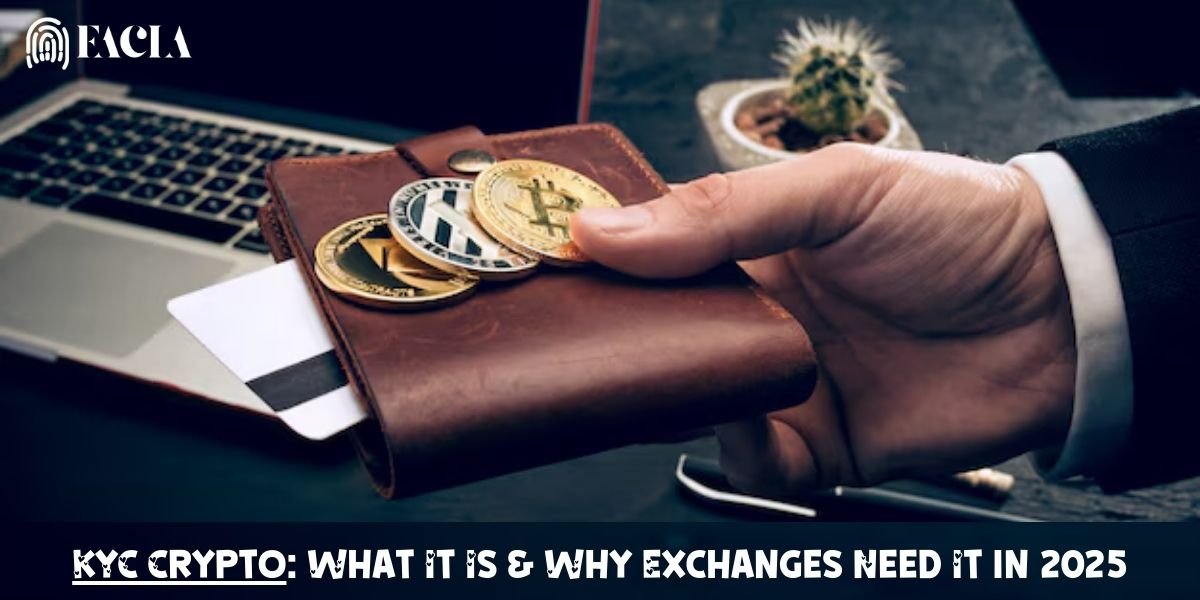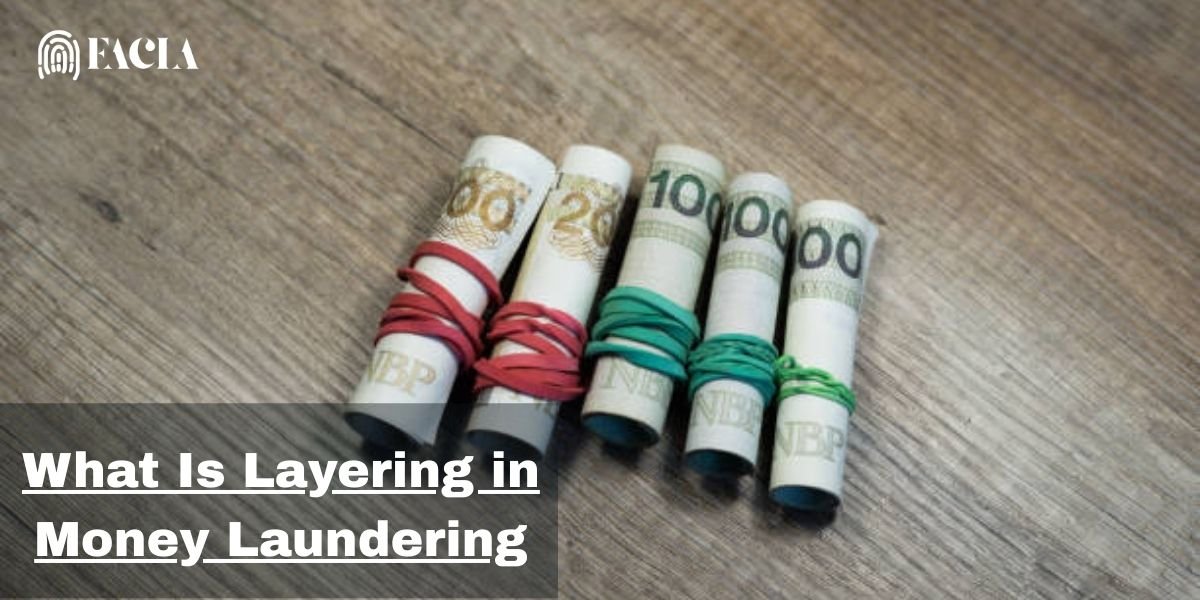Introduction
In the world of finance, cryptocurrency has gained massive popularity due to its decentralized nature, high-speed asset transfers, and anonymity. Many businesses are increasingly using cryptocurrency for their large transactions. But the fraudulent activities are also very uncommon, which is a big and serious problem.
However, unlike banks, cryptocurrency companies—also known as Virtual Asset Service Providers (VASPs)—cannot reverse fraudulent transactions, making them attractive targets for fraudsters and scammers. This is where KYC (Know Your Customer) comes in to help VASPs tackle these security concerns.
Under the Bank Secrecy Act (BSA), the government restricts crypto companies from identifying their customers through KYC to combat money launderers, scammers, terrorists, and other criminals from making any transaction.
This comprehensive guide will explain the importance and role of KYC in cryptocurrency. Additionally, we address the potential crypto KYC challenges for VASPs and the tools that can help them create a robust solution. Let’s start by understanding the cryptocurrency!
What Cryptocurrency?
Cryptocurrencies like “Bitcoin” and “Ethereum” are virtual assets or digital assets that hold the equivalent value to real money. It’s a great financial revolution that holds a massive value as compared to real money and is very fast to transfer even across borders.
However, their values fluctuate a little in the financial market, which is why a large audience does crypto exchange to generate their profit. This is why in the last decade, cryptocurrency has become a more popular option for individuals and businesses to make their large deposits.
What Is AML for Crypto?
Anti-Money Laundering (AML) due diligence is governed by the government and involves methods and policies to be followed by financial institutions (FI) to prevent illicit funds transfer.
In cryptocurrency, the main goal of AML is to stop money laundering and any fraudulent transaction from being done by criminals. Because many scammers and criminals are highly paying attention to using crypto due to its irreversible transaction policies.
What Is KYC Crypto?
Know your customer (KYC) has imposed the crypto companies to comply with anti-money laundering (AML) and customer due diligence (CDD) regulations.
KYC in crypto involves the steps to verify the onboard client identity by VASPs before allowing them to buy, sell, or exchange cryptocurrency. The main purpose is to understand the client’s financial activities and risks to ensure the client isn’t involved in any illegal financial activity.
However, it is still possible to do crypto transactions without performing KYC. But this poses many financial and security risks to both customers and VASPs.
What are the KYC standards?
KYC standards are the guidelines and procedures that provide a protective layer for financial institutions to prevent any illegal transactions. Cryptocurrency companies need to obey KYC standards to prevent financial crimes like:
- Money laundering: Concealing illegally obtained funds as legitimate income.
- Terrorist financing: Any financial support to terrorist organizations.
- Fraud: Deceiving individuals or organizations for financial gain.
The VASPs must ensure their clients are what they claim to be and what they actually are. To do this, the KYC standards involve the following key components:
- Customer Identification Program (CIP): Verify the client’s identification information, e.g., name, date of birth, address, and ID card or passport number.
- Customer Due Diligence (CDD): Understand the nature of the client’s business or financial activities to validate their source of funds and monitor their transactions.
- Enhanced Due Diligence (EDD): The more rigorous level of due diligence applied to high-risk customers to assess the risks of money laundering.
What Is the Role of KYC in Crypto Currency?
The role of KYC in crypto is to identify the personal and financial information of clients during their onboarding process. This prevents the cryptocurrency exchanges from illegal transactions like money laundering, terrorism funding, tax stealing, or scamming.
Some crypto exchanges allow their customers to create an account first and then ask for KYC verification. But these accounts are highly restricted, and they aren’t allowed to make any transactions until they complete their KYC compliance verification.
The minimum identification information a crypto exchange may require from their clients for KYC verification can be:
- Customer’s Full name
- Date of Birth
- Residential Address
After this, a cryptocurrency company may ask for government-issued ID card photos of both sides (front and back) to verify the above information. For additional security, crypto exchanges can also ask for selfies, contactless biometric verification, and other information to better understand their customers.
The Financial Action Task Force (FATF) guidelines recommend that VASPs take risk-based measurements for KYC crypto compliance. So, the high-risk customer may be required to provide more personal information for KYC identification.
How Crypto KYC Verification Works?
During the registration process, to identify the customer, the KYC verification process starts by acquiring their personal information, which includes:
- Full legal name
- Government-issued ID Card Pictures (Front and Back)
- Selfie (for liveness detection)
- Proof of Address (may be required, such as utility bill or bank statement)
After successfully submitting the above information, the verification process, which may involve automated or manual review, checks the submitted documents for authenticity and extracts relevant data. The verification process may take from a few hours to a couple of business days.
If an issue occurs with one or more of the above-provided pieces of information, the customer will be required to resubmit their application and repeat the process.
Once the verification is completed, the customer will be able to buy, sell, store, send, and track cryptocurrencies.
What are the benefits of Crypto KYC Compliance?
Implementing KYC in cryptocurrency exchanges can significantly benefit both VASP and the customer. Here are some reasons that make crypto KYC compliance complementary:
Build Customer Relationships
KYC compliance builds customer trust by ensuring their virtual assets are safe and that you are taking serious care of them. Customers and businesses can confidently adopt a system that is free from scammers and fraudsters. The VASP, where each account is verified and trusted, adds an extra layer of transparency, which can increase the number of customers.
Lower the Risk of Financial Fraud & Scams
According to the FTC report published on June 3, 2022, from the start of January 2021 through March 31, 2022, more than 46,000 crypto users lost over $1 billion in scams. These losses were about 6 times more than what was reported in 2018.
The KYC works under the AML/CFT laws that require VASPs to identify their customers and their financial sources. The cryptocurrency exchanges can monitor the high-risk customers as per FATF guidelines or outright block them to make the community free from scammers.
By taking these robust actions, cryptocurrency companies not only protect their customers from being victims of fraud but also boost their reputation in the financial market.
Build Trust with Regulators
Given the ever-changing regulatory landscape, KYC in crypto and fintech is a legal requirement under AML and CFT regulations to identify their customers through government-issued ID and verify their financial history and assets are legal. By demonstrating that they properly perform KYC, the VASP builds trust with regulators, and using KYC due diligence can reduce the legal risk of regulatory penalties or licensing issues.
Additionally, implementing strong KYC policies gives cryptocurrency exchanges an edge. Instead of identifying suspicious people, they can focus on improving their user experience and transaction speed.
Stable the Cryptocurrency Value
The cryptocurrency market is highly volatile, meaning its value fluctuates constantly. One contributing factor is the presence of anonymous transactions, some of which are linked to fraudulent or illegal activities.
Implementing KYC on crypto exchanges ensures that users are verified, reducing the risk of fraud and illicit transactions. This will not just foster market stability but also attract more investors and increase overall value.
The Challenges of KYC Verification in Crypto
Even after committing to best practices, cryptocurrency companies may face a persistent set of challenges when implementing KYC. Some of these are:
- AI-powered Fake IDs: Fraudsters are aware of KYC verification procedures and can use advanced AI technologies to bypass traditional verification. This makes it more complicated for standard KYC procedures to identify malicious actors. To combat this challenge, KYC crypto should implement enhanced secure measures, such as contactless biometric verification with advanced liveness detection.
- The Onboarding Friction: Crypto users demand swift onboarding, especially during volatile market periods. Overly complex KYC processes inevitably lead to user frustration and abandonment. Implementing risk-based KYC with streamlined, automated verification for low-risk users can significantly reduce onboarding friction and minimize customer churn.
- Customer and Regulators Different Ideology: Many cryptocurrency users switch to crypto because they believe it is a new and revolutionary technology free from strict rules, unlike traditional financial institutions. On the other hand, the regulators want to enforce their laws to prevent illegal financial activities. These different ideologies make it harder for crypto exchanges to convince customers to provide their legal documents for KYC verification. Crypto exchanges may need to offer an attractive deal to complete the KYC steps during onboarding.
- Heavy Compliance Penalties: Cryptocurrency companies that fail to implement the KYC accurately may face substantial regulatory fines. In 2020, the Financial Crimes Enforcement Network (FinCEN) fined Larry Dean Harmon—the founder of Helix and Coin Ninja—$60 million for violations of the Bank Secrecy Act (BSA) and its implementing regulations.
Best Tools & Technologies for Crypto KYC
Most cryptocurrency exchanges prefer automatic KYC verification for onboarding users to make the process fast. The following tools should be integrated with their KYC software for more accurate identification:
- Automated Identity and Biometric Verification Systems: These systems use AI-powered technologies to verify government-issued IDs, selfies, and videos of onboarding customers. However, they need to continuously improve their algorithm to counter increasingly sophisticated fake ID technologies.
- Digital Footprint Analysis Platforms: The digital footprint provides an additional layer of security in crypto KYC verification. It helps crypto exchanges distinguish between high-risk users and low-risk users by analyzing data from various online sources, including their IP addresses, email addresses, phone numbers, etc.
- Contactless Biometric Verification: Unlike traditional biometric verification systems, contactless biometric verification doesn’t require the user to touch a sensor or device. Contactless verification primarily uses facial recognition and liveness detection to identify the user. However, this technology can also observe users’ fingerprints using their smartphone camera.
What security issues does KYC resolve for crypto companies?
For the crypto industry, implementing KYC is mandatory to ensure security, trust, and compliance with regulators. It helps prevent financial crimes, frauds and points to financial risks while protecting businesses and users. Here’s how KYC helps crypto exchanges to combat these challenges:
Compliance with the Bank Secrecy Act (BSA)
The Bank Secrecy Act (BSA) regulations require financial institutions to keep a record of transactions exceeding $10,000 and report any suspicious financial activity that may be linked to money laundering or tax evasion. KYC in crypto, by verifying user identities and financial history, can detect and report suspicious transactions, reducing illicit activities.
Compliance with Jurisdictional Requirements
The global variation in cryptocurrency regulations creates significant compliance challenges for crypto companies. Crypto KYC leverages digital footprint analysis to determine user location and identity, aiding companies in adhering to diverse local regulations.
Combating Social Engineering Scams
Fraudsters use social engineering to manipulate users into revealing their sensitive information to take over accounts or steal funds. KYC links suspicious transactions to verified identities, which increases the chance of catching scammers and prevents fraud.
Tackling ID Theft and Synthetic ID Fraud
Crypto transactions are generally irreversible, making them susceptible to fraud through false identities. Scammers use presentation attacks, such as deepfakes or stolen biometric information, to bypass security checks. To mitigate these risks, KYC uses advanced liveness detection tools to identify users in real-time and prevent unauthorized access.
Fighting Evolving Fraud Tactics
Criminals constantly develop new, complex fraud methods, such as synthetic identities and credential stuffing. Effective KYC, utilizing advanced identity verification solutions, stays ahead of these threats and protects crypto businesses and users.
Crypto KYC FAQs
Is it possible to buy crypto without KYC?
Yes, decentralized exchanges (peer-to-peer) and crypto ATMs may offer crypto purchases without KYC. However, these crypto platforms permit large-scale cryptocurrency trading.
Is KYC mandatory for crypto companies?
Yes, in most countries, KYC is mandatory for crypto companies under BAS guidelines. Regulators require these companies to implement robust KYC/AML programs to comply with financial crime prevention laws. The crypto company that fails to comply can face substantial fines and legal penalties.
What is the Crypto Travel Rule and how is it related to KYC?
The Crypto Travel Rule, an extension of the Financial Action Task Force (FATF) recommendations, requires VASPs to share their customer’s information (name, account number, etc.) when conducting transactions exceeding a specific amount. This is directly related to KYC, as it ensures the authenticity of customer identification and data sharing, improves transaction traceability, and prevents illicit activities.





